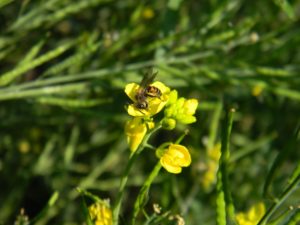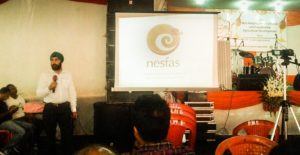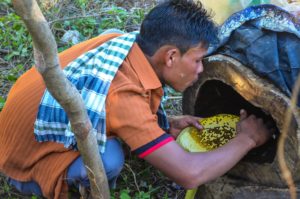“Beekeeping for livelihood and sustainable agricultural development” is the theme of the “World Honey Bee Day” 2017 that was celebrated in Meghalaya, India.
The “World Honey Bee Day” was celebrated on 19 August 2017. It was organised by the Directorate of Horticulture, Government of Meghalaya and sponsored by the Ministry of Agriculture and Farmer’s Welfare at the Integrated Agriculture Training Centre (IATC), 6th Mile, Upper Shillong.
NESFAS was invited to represent the Indigenous Pollinators’ Network and Mr Janak Preet Singh, Sr. Associate, NEFSAS shared a talk to the various farmers present at the programme. Working closely with the communities, NESFAS, over the years in collaboration with the communities have designed future possible interventions towards promoting livelihood opportunities through beekeeping practices. The Indigenous Pollinators’ Network is a platform and a free space that brings together beekeepers, farmers, traditional knowledge holders and experts to deliberate, discuss, research and share their concerns, views and solutions and enhance the role of pollinators essential for traditional food systems.
Though honey bees have been around for millions of years, Indigenous Peoples, with their strong connection to ecological farming systems, still take pride in acknowledging the importance of pollinators and their services to agriculture. Honey also has important culinary and medicinal use.
The Government of India has highlighted that by 2032 they aim to increase farmers income and have identified honey as one of the products that will help to create employment opportunities and livelihood to the rural population. The farmers can contribute to the domestic consumption and provide export to neighboring countries.
The event brought together people from various institutions in Meghalaya to share a collective knowledge and create a platform to amplify the work of beekeepers and also to promote the practice for enhancing livelihood opportunities in the State. NESFAS envisions stronger networks of beekeepers in the near future. The event resulted in connection with local institutions and further develop and strengthen the network, through research and documentation engagement.
 Translate
Translate








I am looking forward to source honey from North Eastern part, can you please guide.